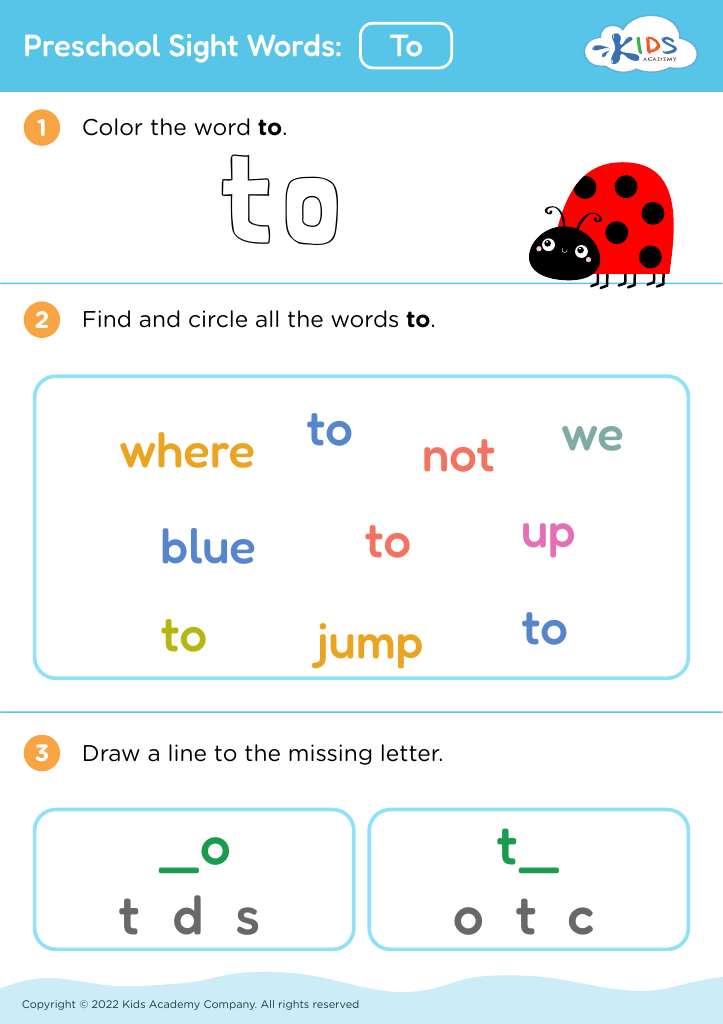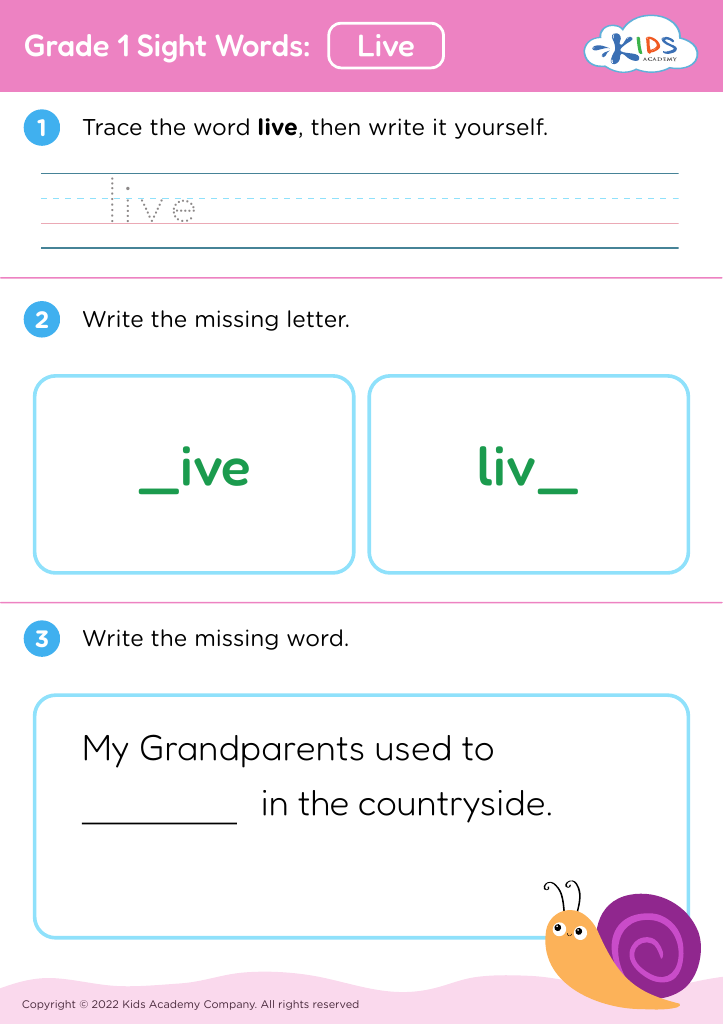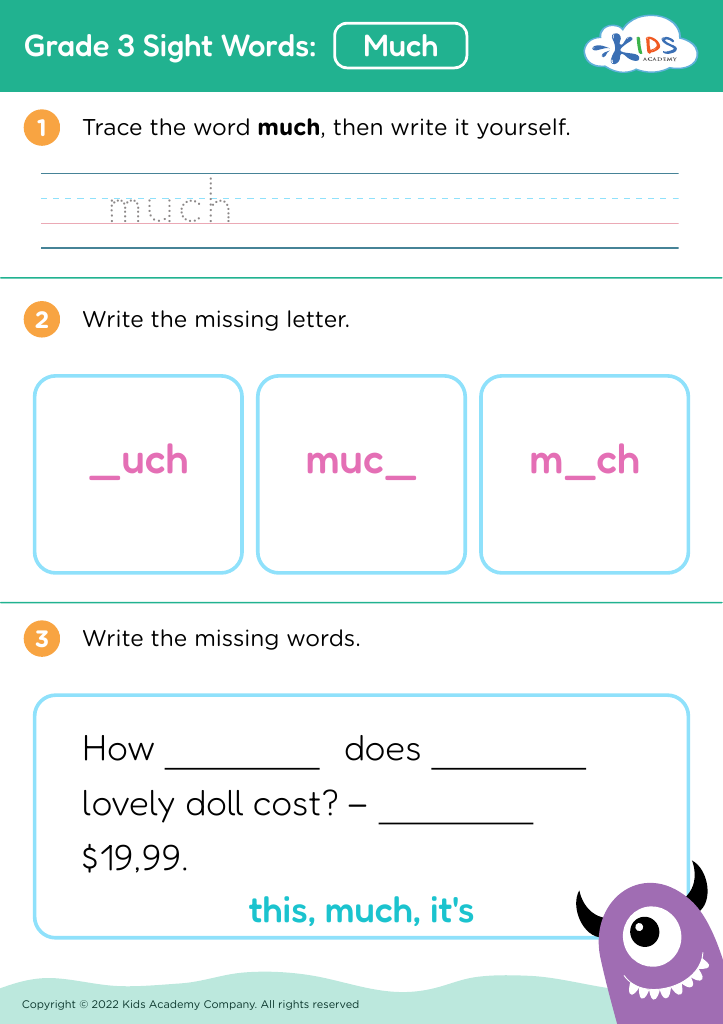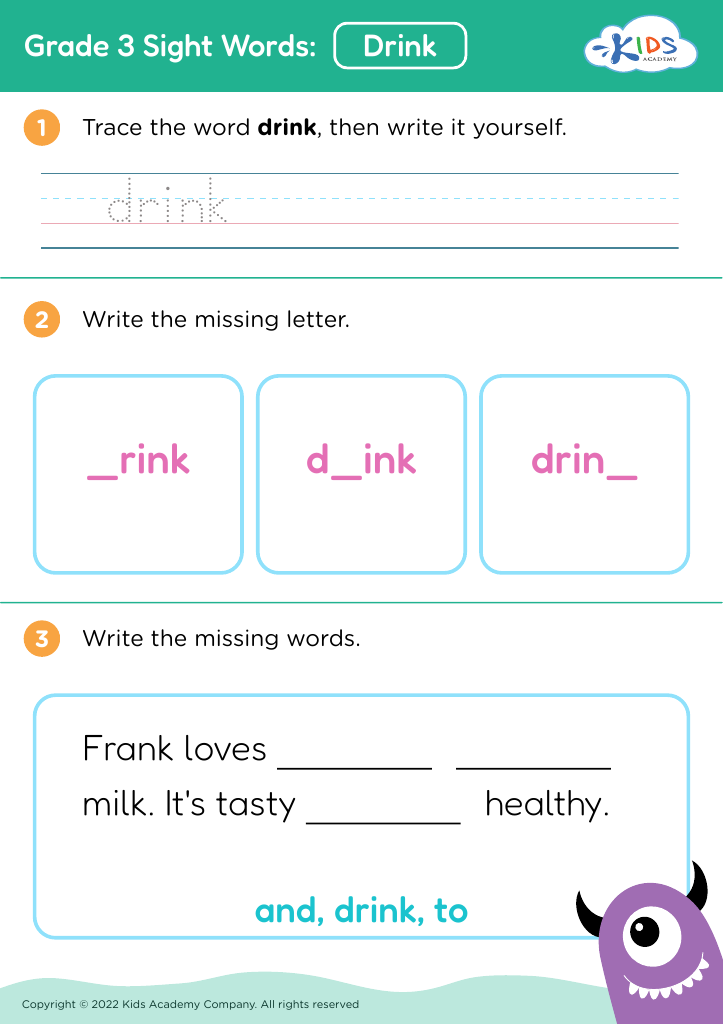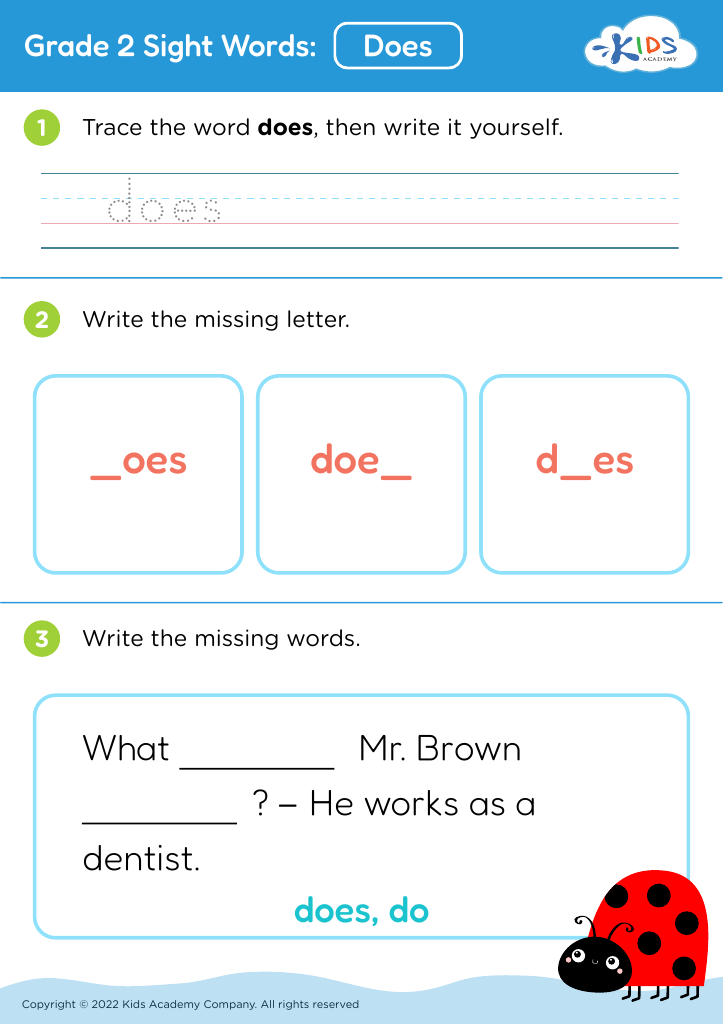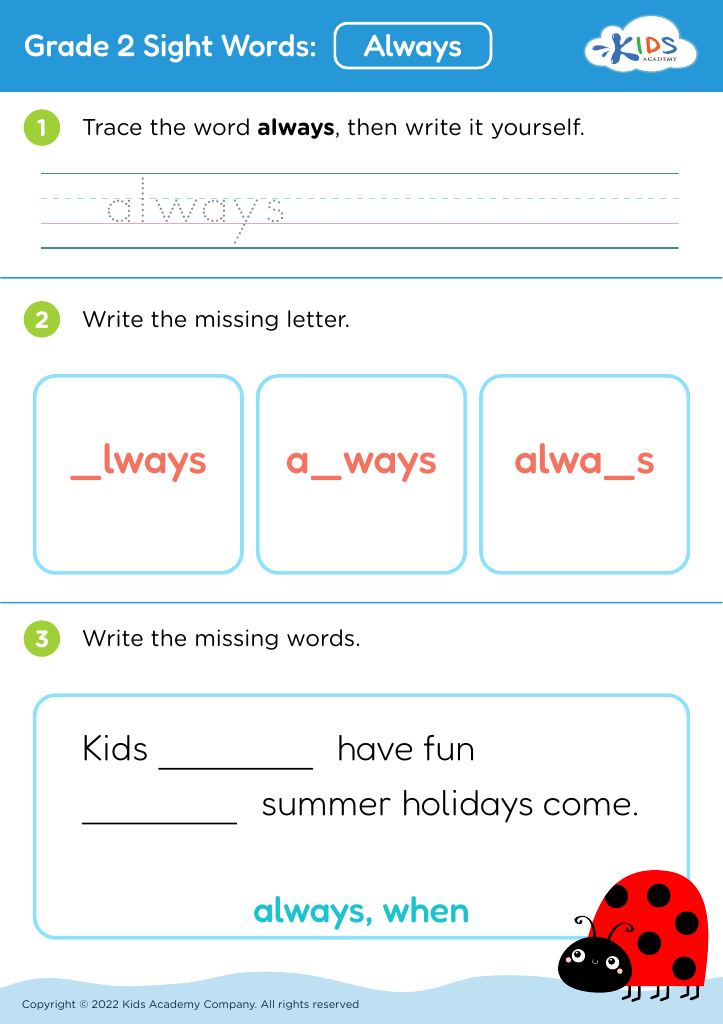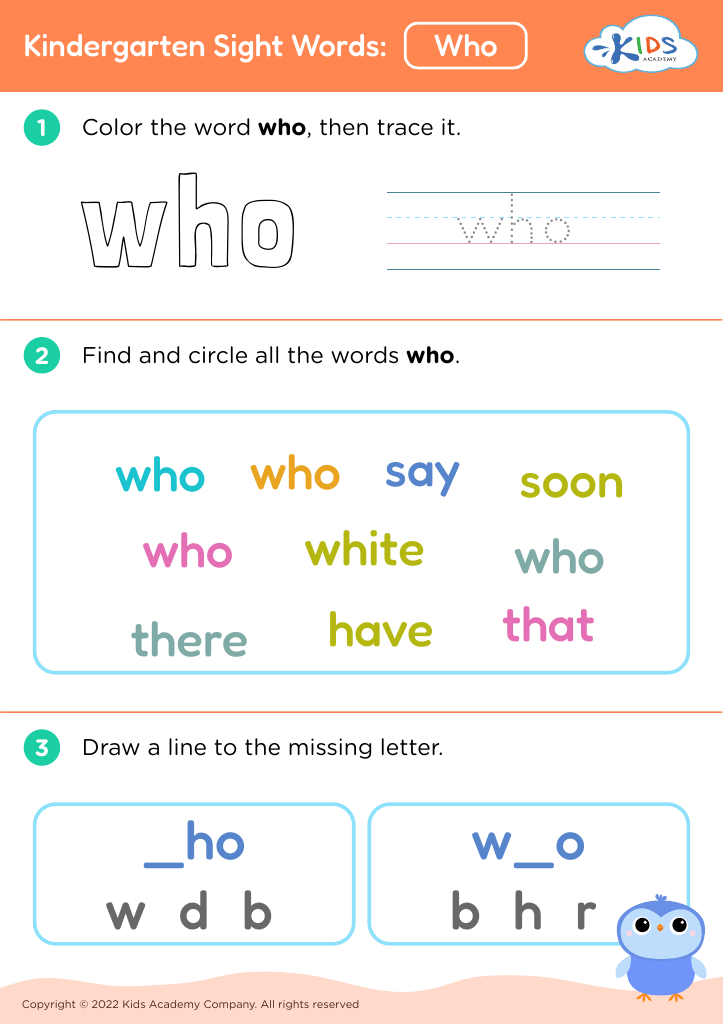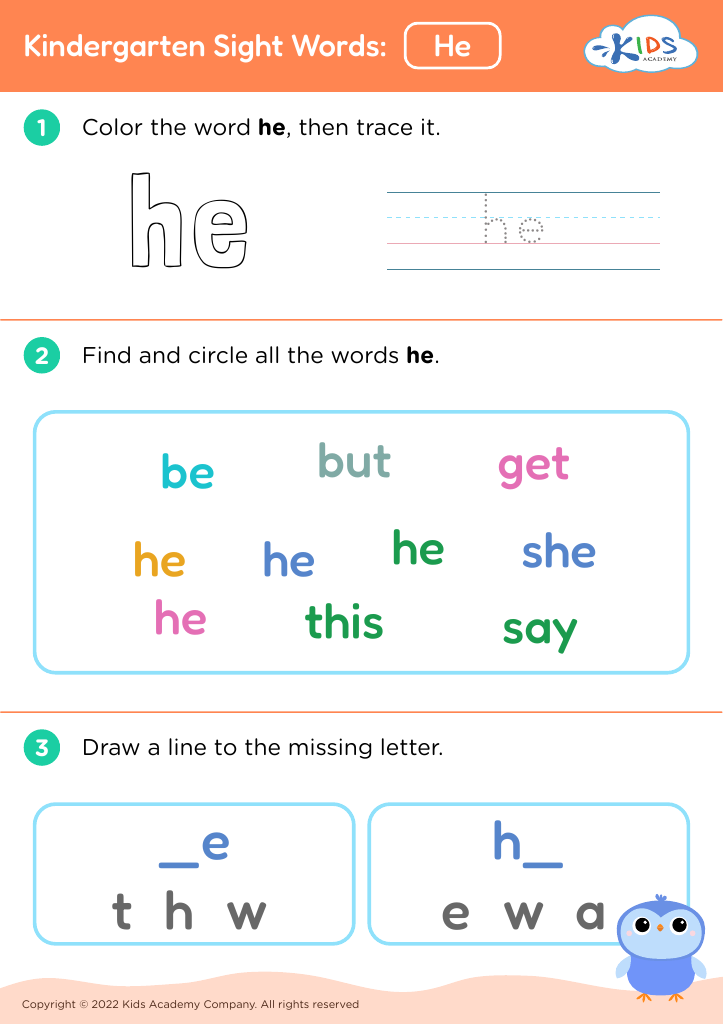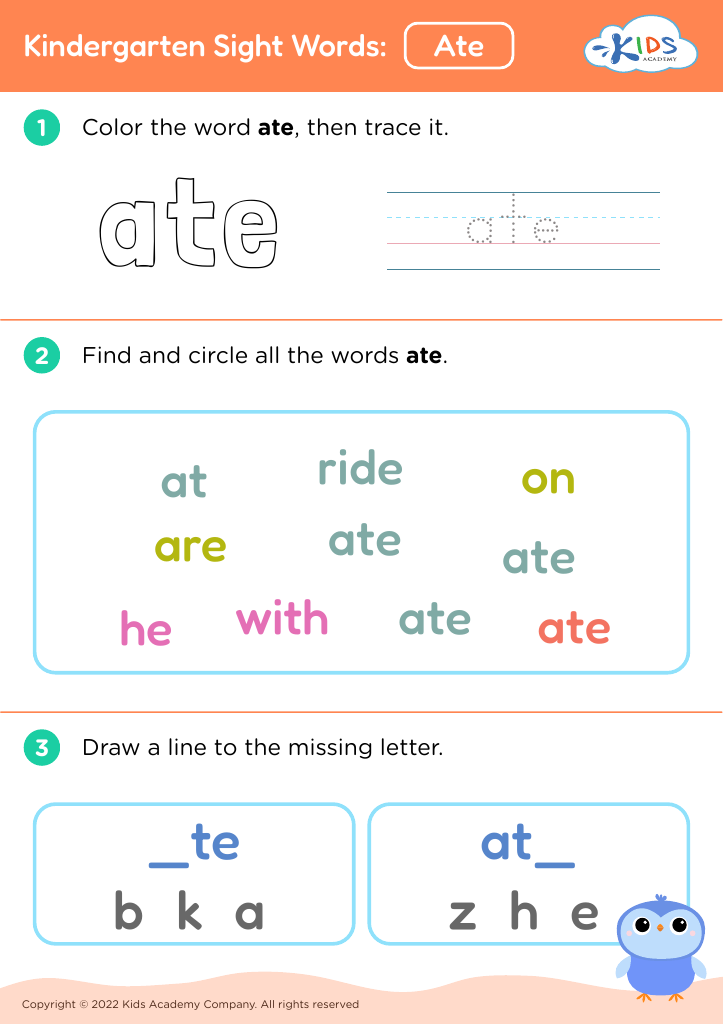Improve reading skills Building Vocabulary Worksheets for Ages 3-8
13 filtered results
-
From - To
Enhance your child's reading abilities with our engaging "Building Vocabulary Worksheets," designed for ages 3 to 8! These resources focus on expanding vocabulary through fun and interactive exercises that align with early learning goals. Each worksheet encourages children to explore new words, visualize meanings, and use vocabulary in context, fostering both comprehension and expressive skills. Perfect for teachers and parents, these worksheets can be easily integrated into daily learning routines. Watch your little ones boost their reading confidence as they embark on an exciting journey through language! Visit our website now to access a range of printable worksheets tailored to young readers.
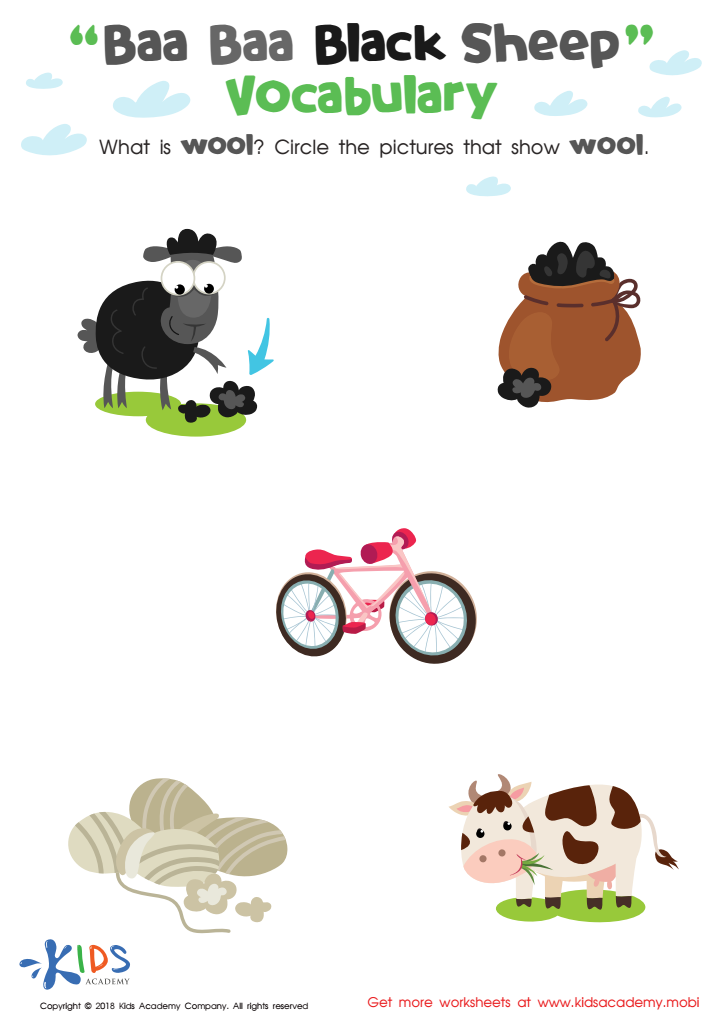

Baa Baa Black Sheep: Vocabulary Worksheet
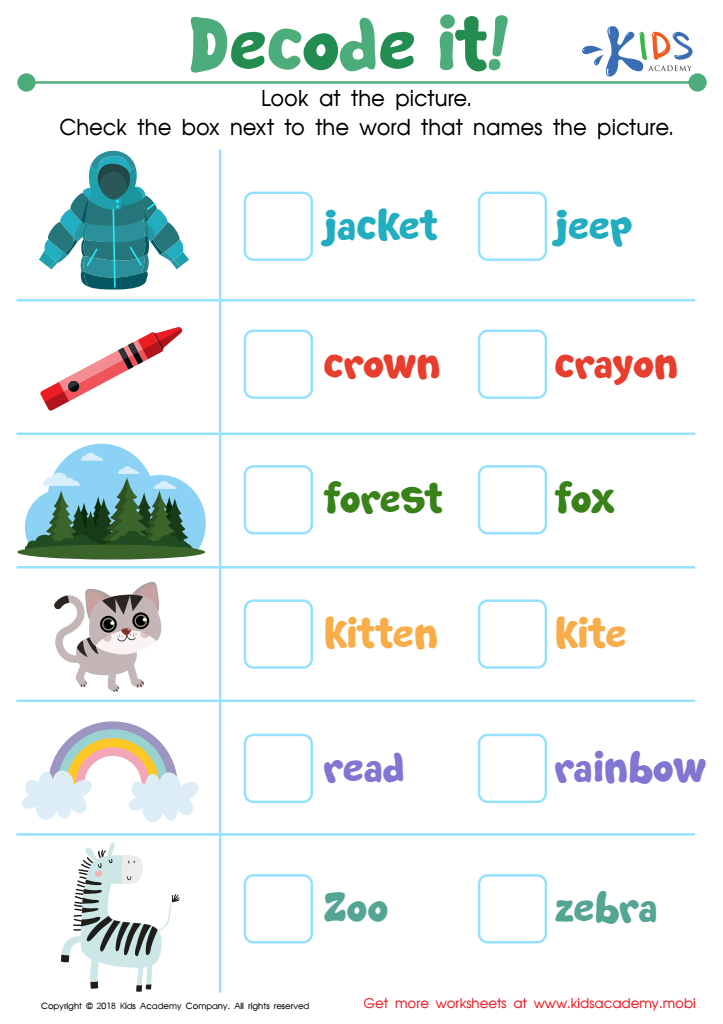

Reading: Decode It Worksheet
Improving reading skills and building vocabulary for children aged 3-8 is critical for their developmental success and lifelong learning. At this stage, children are rapidly developing their cognitive abilities and language skills, which set the foundation for their future academic performance. Parents and teachers play essential roles in nurturing these abilities, as strong reading skills not only enhance comprehension but also boost critical thinking and creativity.
A rich vocabulary is vital for effective communication, allowing children to express themselves clearly and understand others. Early exposure to varied language experiences—through conversations, storytelling, and reading—helps children expand their vocabulary, making learning more enjoyable and engaging. This linguistic development positively impacts their self-esteem and confidence, encouraging a love for reading that lasts a lifetime.
Additionally, fostering reading skills aligns with broader educational goals. Children who develop strong reading habits early on are better equipped to tackle complex subjects in later grades. By prioritizing vocabulary building and reading skills, parents and teachers invest in children's academic futures, equipping them with essential tools to navigate the world around them. In essence, cultivating these skills during these formative years creates a strong educational foundation that benefits children's personal and academic growth.

 Assign to My Students
Assign to My Students











